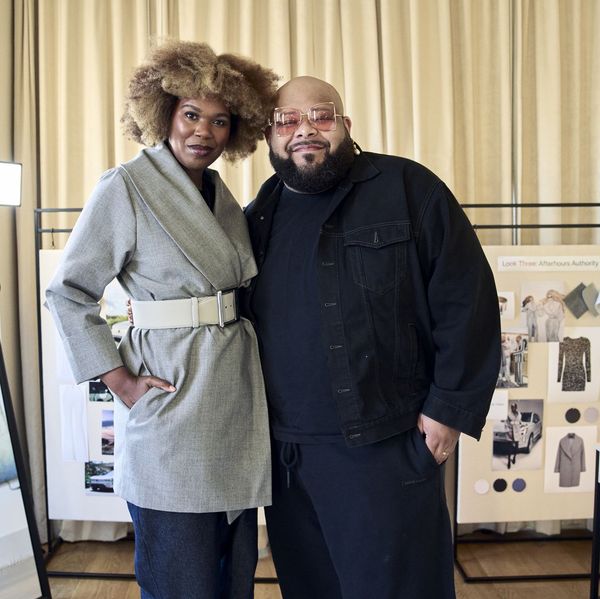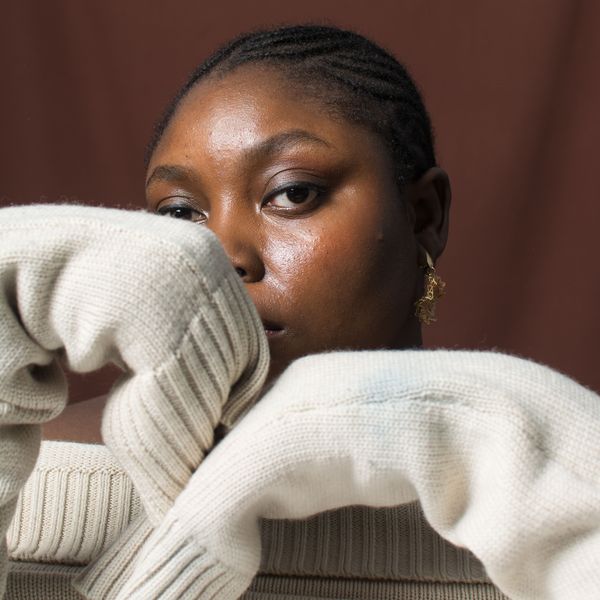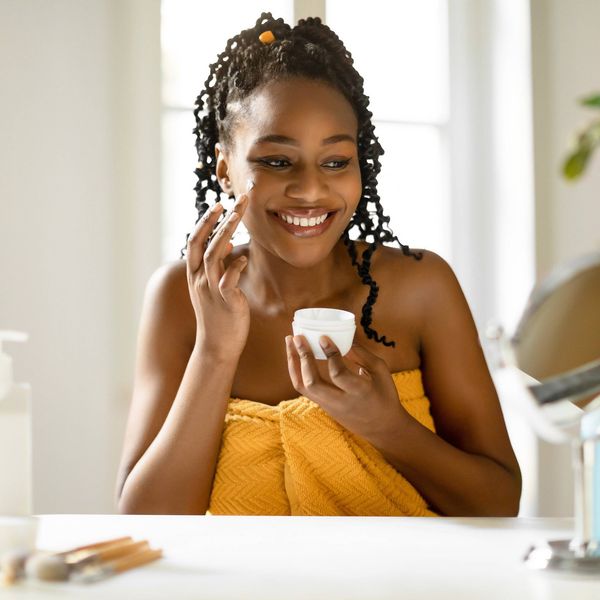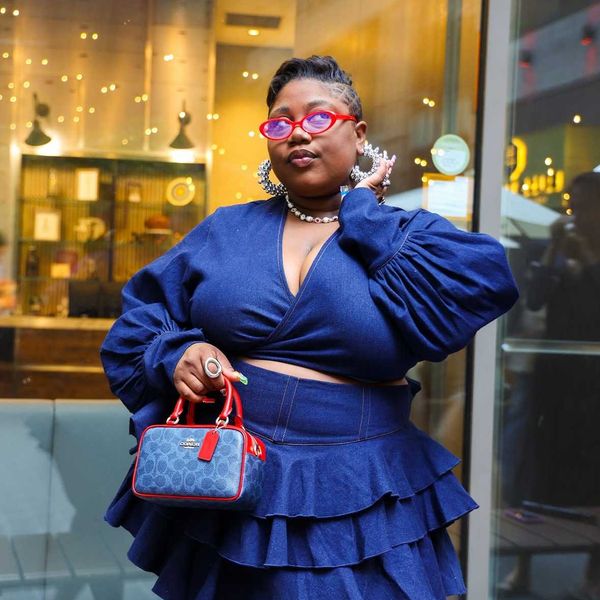#PullUpOrShutUP: Beauty Brands Are Asked To Release Their Numbers Of Black Employees And Execs
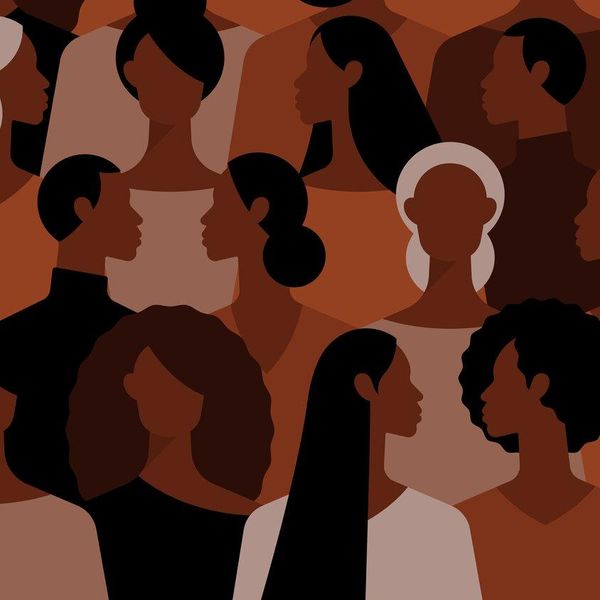
Over the last decade, the beauty industry has been perceived as one of the most inclusive industries in the world. With diverse influencers across the globe and an influx of black-owned businesses over the last few years, it seemingly had diversity and inclusive expertly managed. But in the wake of hard conversations about race in society, a serious challenge was issued to the industry to show us the receipts!
Pull Up or Shut Up is a digital campaign that challenged beauty brands who have released a statement of public support for Black Lives Matter, to publicly release the number of black employees they have in their organizations at corporate level/leadership roles. Started by founder of UOMA Beauty, Sharon Chuter, this initiative is fighting for economic opportunities for black people. "To at this point, to still be absolving yourself from the role you have played and continue to play in the marginalized and oppression of black people, shows that a lot of these efforts are just PR stunts," Chuter says in her inaugural call to action video.
The call to action spread furiously, with beauty influencers like Jackie Aina and Nyma Tang echoing the challenge on their own platforms. While the initial call was for 72 hours post statements, brands are continuing to pull up. The big powerhouse ULTA reported 18% Black board members and 13% Black executive team leaders, while Sephora reported 45% people of color in corporate offices, with 6% being Black. L'Oreal, a self-proclaimed company for multicultural women, reported 7% in corporate positions and 8% at the executive level is black. Since L'Oreal owns juggernaut brands like Maybelline, Essie, Carol's Daughter and Kiehl's, any increase at these brands would make a sizable difference in the lives of many black people.
The cruelty-free brand ColourPop reported 3% black participation and acknowledged there's work to be done. ColourPop's rise to fame coincides with the rise of the influencer, including black influencers like Ellarie and Shayla. PUR is 30% black; Boxy Charm is 8%; and fan-favorite Supergoop! has 2 black people in leadership roles. Smaller brands like Sunday Riley reported 9.1% in management roles, with 20% of the top highest compensated people being Black.
As we can see, many brands profited from black culture without consciously investing in black lives. Without transparency, we cannot start an honest dialogue about the changes that need to happen in our society. It's imperative.
In 2019, only four Fortune 500 companies had a black chief executive, down from seven less than a decade ago. There are more than 1,800 Fortune 500 companies; that discrepancy creates a serious disparity between the black community and other communities. The black community spends $1.2 trillion a year, and that number was projected to $1.5 trillion by 2021, pre-COVID. Black hair care alone raked in an estimated $2.51 billion in 2018.
The black dollar is extremely powerful, yet the black community benefits very little from it. The black dollar is not being reinvested into the black community, but instead into systems that actively neglect and oppress the black community in various facets.
This is about more than representation. It's rooted in the overall mission to build generational wealth for black families. Race-based economic inequality is a persistent feature of the United States that is at odds with the national narrative regarding wealth and racial equality. White households earning more than their black counterparts remained largely constant or even widened between 1967 and 2015. Historical and present-day forms of racism have systematically disadvantaged black communities in their pursuit of economic opportunities.
The profit of black culture without black participation has to stop.
Roughly 8% of people employed in white collar professions are black, and only 3.2% of them are in executive or senior management roles. An active and ongoing push to diversify corporate boardrooms and leadership roles drastically change the landscape for black families. It goes beyond beauty and skincare. Currently, challenges have been issued to Fashion Nova and Nike without any comment from the brands.
Personally, I would like to see other industries follow suit. The fashion industry is extremely underrepresented and has been since its inception. To see the makeup of your favorite glossies and brands would facilitate very interesting conversations, the kind needed to change our world.
Keep up with what brands responded to the challenge and released their numbers by visiting the Pull Up For Change Instagram.
Featured image via Atlas Agency / Shutterstock.com
This Is How To Keep 'Holiday Season Stress' From Infecting Your Relationship
Hmph. Maybe it’s just me, but it seems like there is something really weird happening in the fall season air (because winter doesn’t officially begin until December 21) that cuddle season is in full swing while break-up season is as well. In fact, did you know that break-ups are so popular during the holiday season that December 11 is deemed Break-Up Day?
The reasons why relationships shift around this time vary; however, I did both roll my eyes and chuckle when I read that a very popular one is because it’s an easy way to get out of getting one’s significant other a Christmas present. SMDH.
Anyway, I personally think that the less shallow folks out here may contemplate calling things “quits” or they at least distance themselves a bit from their partner (and what I’m referring to is serious relationships) due to all of the stress and strain that oftentimes comes with the holidays whether it be financial, familial, due to their tight schedules or something else.
Listen, I would hate for you and your man to miss the fun and happiness of experiencing this time of year, all because you are so overwhelmed or irritated that you can’t really enjoy it. That’s why I have a few practical tips for how to avoid allowing the typical holiday season stress from INFECTING your relationship.
Manage Your Expectations
 Giphy
GiphyUnmanaged expectations. If there is a main reason why the holiday season tends to be so stress-filled for so many people, I’d bet good money that this is the cause. And when you’re in a long-term relationship, expectations can manifest themselves in all sorts of cryptic and/or unexpected ways. You might have relatives who assume that you are going to be with them for Thanksgiving or Christmas when you have other plans in mind. You might be thinking that you are going to spend one amount for presents while your man is thinking something totally different. When it comes to scheduling, your signals may be crossed.
And you know what? To all of these scenarios, this is where clear and consistent communication come in. Don’t assume anything. Don’t dictate anything either. From now until New Year’s, mutually decide to check in once a week, just to make sure that you are both on the same page as it relates to the holidays and what you both are thinking will come along with it. The less blindsided you both feel, the less stressed out you will be. Trust me on this.
Set (and Keep) a Budget
 Giphy
GiphyOkay, so I read that last year, 36 percent of Americans incurred some type of holiday-related debt. Hmph. Last year, there was still some sense of normalcy in this country, chile, so I can only imagine what finances are gonna look like over the next several weeks. That said, since I don’t know a lot of people who don’t find being broke stressful, make sure that you and your bae set a budget and then stick to it this year — no ifs, ands or buts.
Because really, y’all — it doesn’t make sense to deplete savings and/or max out credit cards for a few days of giggles only to be damn near losing your mind because you don’t know how to make ends meet come Dr. Martin Luther King, Jr. Day.
And by the way, this tip doesn’t just speak to things like food and gifts; I also mean travel. If it doesn’t make a ton of sense (or cents) to be all over the place this year — DON’T BE.
Keep Matthew 5:37 at the Forefront
 Giphy
GiphyIf off the top of your head, you don’t know what Matthew 5:37 says, no worries, here ya go: “But let your ‘Yes’ be ‘Yes,’ and your ‘No,’ ‘No.’ For whatever is more than these is from the evil one.” That verse right there? Oh, it’s a boundaries lifesaver! I say that because do you see “maybe” or “I’ll think about it” in there? Nope. LOL. It says that you should tell people “yes” or “no” and leave it at that — and that complements Anne Lamott’s quote, “’No’ is a complete sentence” impeccably well. Yeah, you’ve got to remember that anything beyond a yes or no to a request is privileged information; you don’t owe anyone details or an explanation.
Besides, if you are really honest with yourself, when someone asks you something and you give a “Umm, let me think about it” kind of reply, more times than not, you already know what your answer is going to be — so why not let you both off of the hook? Give your response. Commit to that. And let everyone (including yourself) get on with their lives and schedules.
I promise you that when it comes to those holiday parties, you are pissing more folks off by not RSVP’ing or doing so and not showing up than just saying, “Thank you but not this year” off the rip.
Remember That Your Personal Space Is Privilege Not a Right
 Giphy
GiphyA friend of mine recently bought a new house and invited me over to come see it. He’s a single man with no children, so as I was taking in all of the space that he had, especially as I walked through his finished basement, I joked about relatives coming to live with him. “Hell no” and “absolutely not” were pretty much his immediate responses as he went on to say that some folks even had the nerve to be offended when he told them that he had no intentions on taking DNA in.
Ain’t it wild how people think that your stuff is their right? And yes, that brings me to my next point. Your home is your sanctuary space. If you want to host folks this year — cool. If not, ALSO COOL. Please don’t let folks (family included) guilt you into how they want you to act or even into what they would do if the shoe was on the other foot. You are not them — and as one of my favorite quotes states, “If two people were exactly alike, one of them would be unnecessary.” (A man by the name Larry Dixon said that.)
Hell, my friends? They know that I am good for sending them random things that they need or even want all throughout the year. Coming over to hang out at my pace, though. Uh-uh. Chalk it up to being a card-carrying member of the ambivert club yet I like keeping my living space personal — and I sleep like a baby, each and every night, for feeling that way.
Always remember that your space, your time, your resources, your energy and shoot, yourself period (including your relationship), are all things that are your own. You get to choose how, when and why you want to share them. The holiday season is certainly no exception.
Cultivate Some “You Two Only” Traditions
 Giphy
GiphyIt’s not uncommon for some couples to hit me up after the holiday season to “detox.” Sometimes it’s due to the financial drama (and sometimes trauma) that they experienced. Sometimes it’s because they allowed their relatives (especially in-laws) to get more into their personal business than they should’ve. More than anything, though, it tends to be because they didn’t get enough quality time together and so ended up feeling “disconnected.”
Please don’t let that happen. Listen, I’m not even a holidays kind of woman and yet, I will absolutely sit myself down with some hot chocolate and chocolate chip cookies to enjoy a Hallmark holiday film or two. Aside from the fact that most of them are lighthearted and sweet, I also like that they usually focus on couples loving on each other amidst all of the holiday beauty and ambiance — which is something that all couples should set aside some time to do.
Maybe it’s a vacation. Maybe it’s a staycation. Or maybe it’s my personal favorite, A SEXCATION. Whether it’s for a few days, the weekend or even overnight — don’t you let the holidays go by without setting aside time for you and your man to celebrate one another. Don’t you dare (check out “Are You Ready To Have Some Very Merry 'Christmas Sex'?”).
GET. SOME. REST.
 Giphy
GiphyI once read that 8 out of 10 people get stressed out over the holidays and 3 out of 10 lose sleep during to it — and when you’re stress-filled and sleep-deprived, that can absolutely lead to hypersensitivity, making mountains out of molehills and even not being in the mood for sex.
Your relationship can’t afford to go through any of this, so definitely make sure to prioritize rest. I don’t care how unrealistic it might seem during this time, sleep should never be seen as a luxury; it will always and forever be a great necessity.
That said, try to get no less than six hours of shut-eye in (check out “6 Fascinating Ways Sex And Sleep Definitely Go Hand In Hand”) and even ask your bae to take a nap with you sometimes (check out “Wanna Have Some Next-Level Sex? Take A Nap, Sis.”). Not only will sleep help to restore your mind, body and spirit but, when it’s with your partner, it’s an act of intimacy that can make you both feel super connected, even in the midst of what might feel like chaos.
___
Holiday season stress is real. Still, never give it the permission or power to throw your relationship off. Put you and your man first and let the holidays be what they are gonna be, chile.
Let’s make things inbox official! Sign up for the xoNecole newsletter for love, wellness, career, and exclusive content delivered straight to your inbox.
Featured image by Shutterstock
This Experience Curator Details How To Host Guests For The Holidays
In many cultures, going to grandma's house for the holidays has always been the thing to do. But as we get older, things change. We move to new cities, start our own families, and our grandparents may no longer be around, so our homes may now be the holiday destination for extended family.
However, playing host can be a hassle, especially during the holidays when your home becomes your family and friends’ home for a short period. And if this is your first year hosting the holidays at your place, you can be in for a rude awakening if you don’t make the necessary preparations beforehand.
We spoke to NYC-based experience curator and owner of POP! by Yaz, Yasmin “Yaz” Quiles, to help guide first-timers. According to Yasmin, an experience curator is “someone who not only focuses on an actual event but the entire experience, and that can mean anything from the first point of contact, things from an invitation, a website, all the way to the end and after effects.”
If you are hosting the holidays in your home, it is important to touch on all of these points so that your guests can have an experience to remember. Here are the steps to successfully host family and friends for the holidays.
1.Plan and Organize:
Before people start showing up to your house, you must plan out what you need and for how many people. It's also a great time to be creative. “The first part is the dream part because it’s the fun part. What do I envision my event to look like? What do I want my people to feel when they come to my space? Ask all of the questions for the first point of contact,” says Yasmin. “What kind of invitation [am I using?] Who am I inviting? What kind of music are we listening to? The food. So, you start thinking about what the vision is, and then after the dreaming, you organize your thoughts.”
That includes putting together a budget. “See what you have access to, what you need help with, and what you may need to outsource,” she advises. Meaning, this is the time to decide if you and your family will be cooking or if everyone will chip in to get dinner catered.
2.Repurpose Your Items:
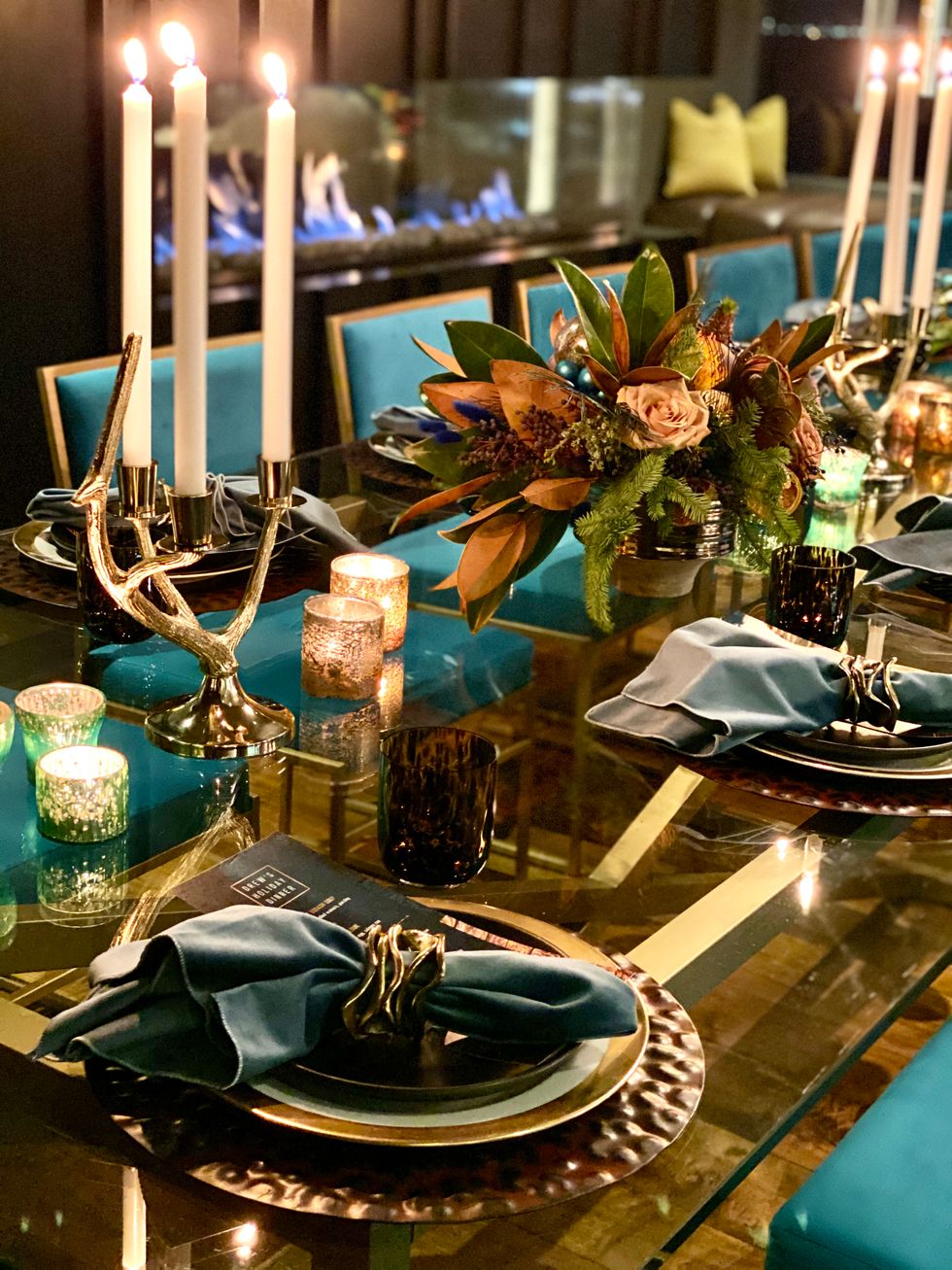
Photo courtesy of Yasmin Quiles
As you continue to plan and organize, it's important to take stock of what you already have at home. This can also help you stay within budget. If you have a limited budget then start thinking about how to utilize what you already have in a innovative way.
“I also like to start with inventory. What [are] items in your house that you can use? That way you can determine what it is that you have to get,” she suggests. “I feel like a lot of people always put together a list and it's always 'buy, buy, buy, buy,' versus ‘oh, wait a minute, I actually do have some things that I can utilize and I can just use it in a different way.’”
For example, “Utilizing a console as a small bar area or creating fake fireplaces. I think there are ways to use items in your space so that you don’t have to continue to fill it up with new things.”
3.Make Your Guests Feel Like They Are at Home:
Ever heard the saying, "mi casa es su casa?" You want your space to make guests feel like a home away from home and having a cozy place to sleep plays a major part in that. Be realistic about how many people you can fit comfortably in your home. “Figure out how much space you have in your house and how many people you can truly accommodate,” she says. “What that means is even if you have a two-bedroom apartment, what are some creative ways you can create some space for them? Is it an air mattress or is it getting a hotel that is close to you; Airbnb's?”
You also want to provide your guests with the necessary accouterments and the gift of convenience. If you have certain rituals in your home, you want to make sure your guests can also participate in them. “What I love to do with my guests, I always love to make them feel like they're at home even when they are not, so I like to replicate the things I love in a hotel room. In our house we take off our shoes so we always have disposable slippers here that people can slide on or brand new socks in a basket,” she explains. “That way they can feel immediately comfortable the moment they pass the threshold in your house."
"And in the bathroom or if there’s a powder room, I like to put together a little welcome basket and it can be something as simple as here’s your towel, here’s your washcloth, all the little toiletries you may need," she adds. "I give them their own little stash, that way they don’t feel like they’re burdening me by asking, 'oh, do you have q-tips' or whatever it is. It’s all already set up there for them and it makes them feel so welcome and thought of.”
4.Food and Entertainment:

Photo courtesy of Yasmin Quiles
Along with welcome baskets, the Afro-Latina entrepreneur also enjoys putting lists together with a few of her recommendations. Think, welcome lists you receive at hotels and Airbnb. “I’ll put together a short list of my favorite restaurants, my favorite channels or shows to watch that way they can be entertained while I’m doing other things,” she says.
The holidays involve a lot of cooking and so going out to eat may not be an option. But neither is eating mac and cheese, collard greens, and ham all day, every day. So, it's best to provide options for your guests. “When people go to other people’s homes, they really want the house experience so eating out is great, it’s fine, but I think it really makes people happy when immediately there at home at your house," explains Yasmin.
"What I like to do is immediately have an assortment of snacks available and that means everything from the folks that are on a diet to folks who want to indulge and have a little bit of everything. That way we have a good selection. And [I like to have] things that can be left out for a couple of days as well so I’m thinking pre-packaged items that way [they can] 'grab and go.'”
5.Activities:
When having guests stay over for a few days, you should want to do more than just stay in and look at each other the whole time. Similarly to the way Yasmin advises providing a list of recommendations for eating out and indoor entertainment for guests, she suggests providing guests with a list of favorite stores or favorite markets with recommendations of what to buy.
This can also be a great time to show your guests where you live by going on walks or a scenic drive. "A lot of times these holiday celebrations happen when we are in the midst of planning and doing things and doing all the last-minute errands. Another thing I like to do is photo albums, people love photo albums.”
Yasmin recommends having a physical photo album that you and your guests can look through or a digital frame such as Aura Frames that holds photos online that you can continue to add to.
6.Music:
What’s left is providing the ambiance. One of the many ways that people do this is by having a playlist. Creating a playlist is fun but can also be time-consuming. Not only do you have to add your auntie's favorite Christmas song to the playlist but you may also want to take a trip down memory lane with your siblings and jam to a throwback from your childhood. Yasmin reveals a solution, which she refers to as an “elevated” experience.
“You can hire a DJ. They can do a set on Twitch,” Yasmin says. “There’s a chatroom function so you can put it on your TV, so all the guests who are there can listen to the music live but if there are guests who can’t make it for whatever reason, they can tune in and participate via the chat.”
The experience curator also suggests having a quiet space for those who are more introverted or need a break from the loud music and crowd.
7.The Breakdown:
Whether you and your family decide to cook together or hire a caterer, cleaning up after a big event is always a buzz kill. Yasmin recommends outsourcing help as a way to enjoy yourself and not worry about the aftermath. “Clean up can be a big hassle. It is okay to get a cleaning team. It is okay to hire a bartender. It is okay to hire anybody who can make your job easier,” she assures.
“The point of these events really is to connect and I feel we get so caught up in the doing that we forget that and the party ends and we’re like, ‘Dang, I didn’t get to have a conversation with my best girlfriend who I haven’t seen in six months.’ Give yourself permission to outsource so that you can have a good time.”
For more information about Yasmin, you can visit her website at yazquiles.com and follow her on Instagram @popbyyaz.
Feature image courtesy of Yasmin Quiles
Originally published on December 13, 2022



